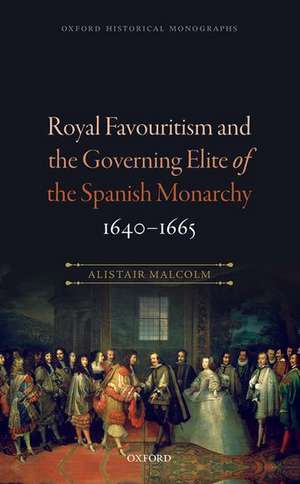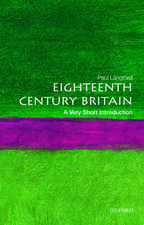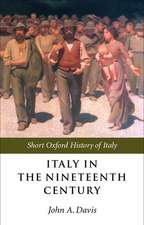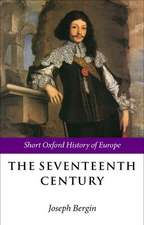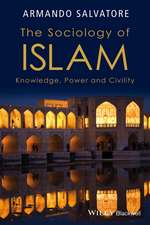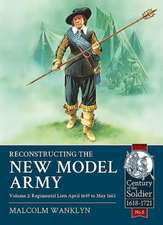Royal Favouritism and the Governing Elite of the Spanish Monarchy, 1640-1665: Oxford Historical Monographs
Autor Alistair Malcolmen Limba Engleză Hardback – 15 dec 2016
Din seria Oxford Historical Monographs
- 19%
 Preț: 497.26 lei
Preț: 497.26 lei - 12%
 Preț: 310.34 lei
Preț: 310.34 lei - 30%
 Preț: 539.99 lei
Preț: 539.99 lei - 15%
 Preț: 244.01 lei
Preț: 244.01 lei - 13%
 Preț: 532.53 lei
Preț: 532.53 lei - 30%
 Preț: 499.46 lei
Preț: 499.46 lei - 30%
 Preț: 497.67 lei
Preț: 497.67 lei - 30%
 Preț: 499.46 lei
Preț: 499.46 lei - 30%
 Preț: 498.68 lei
Preț: 498.68 lei - 30%
 Preț: 604.98 lei
Preț: 604.98 lei - 30%
 Preț: 497.63 lei
Preț: 497.63 lei - 24%
 Preț: 496.31 lei
Preț: 496.31 lei - 30%
 Preț: 498.68 lei
Preț: 498.68 lei - 22%
 Preț: 497.81 lei
Preț: 497.81 lei - 25%
 Preț: 556.27 lei
Preț: 556.27 lei - 14%
 Preț: 539.57 lei
Preț: 539.57 lei - 30%
 Preț: 500.29 lei
Preț: 500.29 lei - 13%
 Preț: 533.57 lei
Preț: 533.57 lei - 25%
 Preț: 569.72 lei
Preț: 569.72 lei - 30%
 Preț: 610.82 lei
Preț: 610.82 lei - 34%
 Preț: 1153.34 lei
Preț: 1153.34 lei - 51%
 Preț: 614.88 lei
Preț: 614.88 lei - 34%
 Preț: 1195.31 lei
Preț: 1195.31 lei - 34%
 Preț: 1035.84 lei
Preț: 1035.84 lei - 34%
 Preț: 1006.40 lei
Preț: 1006.40 lei - 29%
 Preț: 864.39 lei
Preț: 864.39 lei - 34%
 Preț: 1160.09 lei
Preț: 1160.09 lei - 34%
 Preț: 1432.67 lei
Preț: 1432.67 lei - 31%
 Preț: 328.46 lei
Preț: 328.46 lei - 34%
 Preț: 574.40 lei
Preț: 574.40 lei - 34%
 Preț: 1067.93 lei
Preț: 1067.93 lei - 34%
 Preț: 1004.67 lei
Preț: 1004.67 lei - 31%
 Preț: 331.22 lei
Preț: 331.22 lei - 34%
 Preț: 1153.28 lei
Preț: 1153.28 lei - 34%
 Preț: 1254.66 lei
Preț: 1254.66 lei - 34%
 Preț: 946.79 lei
Preț: 946.79 lei - 34%
 Preț: 962.63 lei
Preț: 962.63 lei - 34%
 Preț: 1126.38 lei
Preț: 1126.38 lei - 31%
 Preț: 469.27 lei
Preț: 469.27 lei - 23%
 Preț: 332.04 lei
Preț: 332.04 lei - 28%
 Preț: 375.23 lei
Preț: 375.23 lei - 34%
 Preț: 1049.14 lei
Preț: 1049.14 lei - 34%
 Preț: 1036.73 lei
Preț: 1036.73 lei - 51%
 Preț: 757.67 lei
Preț: 757.67 lei - 34%
 Preț: 1082.61 lei
Preț: 1082.61 lei - 34%
 Preț: 1155.39 lei
Preț: 1155.39 lei - 31%
 Preț: 328.53 lei
Preț: 328.53 lei - 34%
 Preț: 1110.12 lei
Preț: 1110.12 lei - 31%
 Preț: 487.75 lei
Preț: 487.75 lei - 34%
 Preț: 1153.41 lei
Preț: 1153.41 lei
Preț: 641.70 lei
Preț vechi: 921.88 lei
-30% Nou
Puncte Express: 963
Preț estimativ în valută:
122.83€ • 133.46$ • 103.24£
122.83€ • 133.46$ • 103.24£
Carte tipărită la comandă
Livrare economică 10-16 aprilie
Preluare comenzi: 021 569.72.76
Specificații
ISBN-13: 9780198791904
ISBN-10: 0198791909
Pagini: 330
Dimensiuni: 148 x 223 x 23 mm
Greutate: 0.49 kg
Editura: OUP OXFORD
Colecția OUP Oxford
Seria Oxford Historical Monographs
Locul publicării:Oxford, United Kingdom
ISBN-10: 0198791909
Pagini: 330
Dimensiuni: 148 x 223 x 23 mm
Greutate: 0.49 kg
Editura: OUP OXFORD
Colecția OUP Oxford
Seria Oxford Historical Monographs
Locul publicării:Oxford, United Kingdom
Recenzii
This book lays the foundation for a re-examination of the politics and personalities of Philip IV's reign and in doing so provides an inestimable service to students of court and government. At last, the third great favourite of the Spanish seventeenth century and the court in which he operated become properly visible to us.
This remarkable study is the product of years of research ... Malcolm never permits himself to get bogged down in details but pieces them together in eminently sensible readings of a larger picture ... this is a superb book.
Haro's elusive nature means he has not come to the fore in later historiography, and Malcolm's study rectifies this situation. ... What Malcolm does to fill in the gaps is to combine an impressive grasp of mid-seventeenth-century Spanish aristocracy, its intermarriages, feuds, and pretentions of royal ancestry with an equally impressive depiction of the ideas shaping this aristocracy. ... The fact that Luis de Haro was not quite the archetypal favorite in the same way as Lerma, Olivares, Buckingham, or Richelieu makes Malcolm's study even more valuable. A different kind of favorite, like Haro, shows the many nuances and forms early modern government could take and adds to our understanding of a fascinating and complex phenomenon.
Alastair Malcolm's well-written, detailed and sophisticated examination of these twenty-five years focused through an analysis of the role played by the new royal favourite, don Luis Méndez de Haro, nephew to the previous favourite Olivares, makes for compelling reading and provides one of the best studies on the later years of the reign of Philip IV. In addition, it is backed up by impressive archival research in state and private noble libraries in Spain, Italy, France, England that should not be underestimated. Here are listed resources that others will wish to consult for their own research.
Malcolm's study of court politics in the second half of Philip IV's reign represents a substantial contribution to an overlooked period in early modern Spanish history. The author draws from the established works of J. H. Elliott and others, yet he also pulls from a substantial body of new archival research and primary documents, offering details which illuminate the inner workings of Haro's circle. Malcolm's monograph will undoubtedly become an instrumental source for anyone studying Philip IV and early modern Spanish politics.
This book is a perceptive, clearly argued, and well-written contribution to a better understanding of a surprisingly obscure but key juncture in early modern Spanish history. It also provides further proof -- if proof is needed -- that the study of the political apparatus that underlay the Hispanic Monarchy has reached new levels of analytical depth and sophistication.
This beautifully written book provides fresh perspectives on the Hispanic Monarchy in the mid-seventeenth century as well as a fascinating portrait of one of the most elusive royal favourites.
Malcolm's impressive grasp of the details of the Spanish aristocracy and international politics of the 1640s and 1650s makes this an important book ... Malcolm makes the wealth of names and connections the reader needs to grasp as comprehensible as possible, particularly through tables and family trees
This remarkable study is the product of years of research ... Malcolm never permits himself to get bogged down in details but pieces them together in eminently sensible readings of a larger picture ... this is a superb book.
Haro's elusive nature means he has not come to the fore in later historiography, and Malcolm's study rectifies this situation. ... What Malcolm does to fill in the gaps is to combine an impressive grasp of mid-seventeenth-century Spanish aristocracy, its intermarriages, feuds, and pretentions of royal ancestry with an equally impressive depiction of the ideas shaping this aristocracy. ... The fact that Luis de Haro was not quite the archetypal favorite in the same way as Lerma, Olivares, Buckingham, or Richelieu makes Malcolm's study even more valuable. A different kind of favorite, like Haro, shows the many nuances and forms early modern government could take and adds to our understanding of a fascinating and complex phenomenon.
Alastair Malcolm's well-written, detailed and sophisticated examination of these twenty-five years focused through an analysis of the role played by the new royal favourite, don Luis Méndez de Haro, nephew to the previous favourite Olivares, makes for compelling reading and provides one of the best studies on the later years of the reign of Philip IV. In addition, it is backed up by impressive archival research in state and private noble libraries in Spain, Italy, France, England that should not be underestimated. Here are listed resources that others will wish to consult for their own research.
Malcolm's study of court politics in the second half of Philip IV's reign represents a substantial contribution to an overlooked period in early modern Spanish history. The author draws from the established works of J. H. Elliott and others, yet he also pulls from a substantial body of new archival research and primary documents, offering details which illuminate the inner workings of Haro's circle. Malcolm's monograph will undoubtedly become an instrumental source for anyone studying Philip IV and early modern Spanish politics.
This book is a perceptive, clearly argued, and well-written contribution to a better understanding of a surprisingly obscure but key juncture in early modern Spanish history. It also provides further proof -- if proof is needed -- that the study of the political apparatus that underlay the Hispanic Monarchy has reached new levels of analytical depth and sophistication.
This beautifully written book provides fresh perspectives on the Hispanic Monarchy in the mid-seventeenth century as well as a fascinating portrait of one of the most elusive royal favourites.
Malcolm's impressive grasp of the details of the Spanish aristocracy and international politics of the 1640s and 1650s makes this an important book ... Malcolm makes the wealth of names and connections the reader needs to grasp as comprehensible as possible, particularly through tables and family trees
Notă biografică
Alistair Malcolm studied History at the Universities of St Andrews and Oxford, and is currently a lecturer at the University of Limerick. He is a specialist in the cultural and political history of Spain during its Golden Age. His current projects are a general study of the effects of court favouritism on policy-making in Spain during the seventeenth century, and a book of documents in translation to assist in the teaching of early modern Spanish history for undergraduates. His approach to the writing of history is one intended to appeal to specialists and general readers alike.
